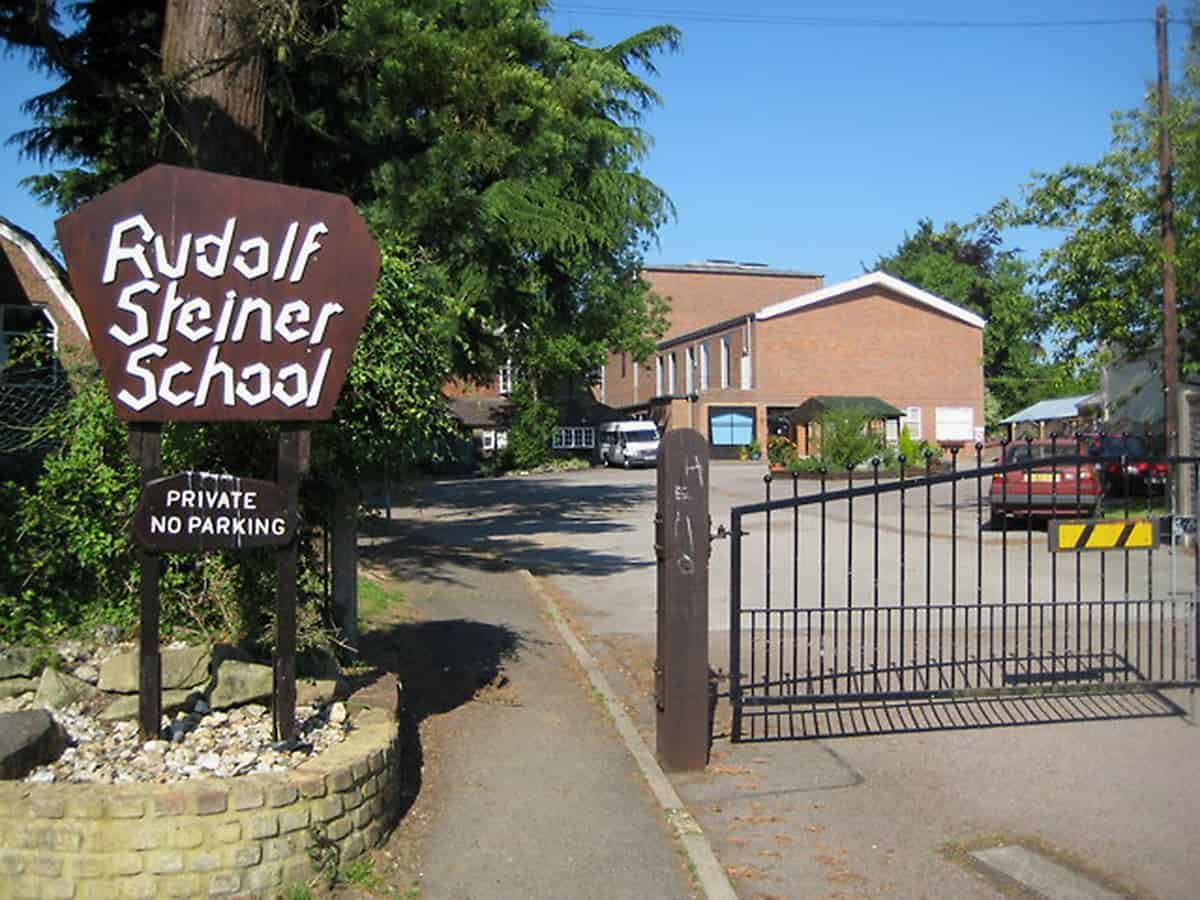“`html
A Parent’s Guide to Steiner Schools: Nurturing Your Child’s Natural Development
Hello wonderful parents! Are you on the lookout for an education approach that embraces your child’s individuality, creativity, and love for learning? Welcome to the enchanting world of Steiner schools!
Also known as Waldorf education, Steiner schools offer a holistic approach to learning that aims to develop the whole child – head, heart, and hands. The philosophy is rooted in the teachings of Rudolf Steiner, and it’s all about nurturing a child’s emotional, intellectual, and practical skills. Diving into this guide, we will explore the colorful tapestry that Steiner schooling weaves into the fabric of education.
What Makes Steiner Schools Unique?
The uniqueness of Steiner schools can be summed up in one word – holistic. Unlike traditional schooling that often focuses on academic achievement, Steiner schools are dedicated to the growth of each child’s spirit, soul, and body. Here’s what sets them apart:
- A curriculum that evolves with the child’s developmental stages
- Emphasis on creativity and imaginative play
- Integration of arts, crafts, music, and movement in daily lessons
- An unhurried approach to childhood and learning
- Respect for the natural world and the rhythms of nature
Understanding the Steiner Philosophy
Steiner education is built upon the foundation that children learn in distinctly different ways at various stages of their development. Rudolf Steiner outlined these stages in seven-year cycles, each with its specific needs and learning modalities. Here’s a quick look:
- The First Seven Years: Learning through doing and imitating, with a strong emphasis on play.
- The Next Seven Years: Developing imaginative thinking and emotional intelligence through arts and stories.
- The Teenage Years: Encouraging independent thought and exploring complex concepts and global issues.
By aligning education with these phases, Steiner schools strive to unlock the full potential of every child, ensuring they grow into balanced, responsible, and free-thinking individuals.
The Steiner Curriculum: A Tapestry of Learning
Looking at the Steiner curriculum, one will find a rich mosaic of subjects. It’s a dynamic and integrated program where academic, artistic, and practical disciplines are woven together. You won’t find standardized testing here; instead, teachers assess progress through observing each student’s development, work, and character. Let’s peek at some pillars of the curriculum:
- Main Lessons: Thematic blocks that integrate various subjects, including history, science, literature, and mathematics.
- Language Arts: Studying classic texts, poetry, and drama, enhancing linguistic dexterity and a passion for literature.
- Mathematics: Understanding numbers through movement, rhythm, and hands-on projects.
- Sciences: Experiential learning that fosters a deep relationship with the natural world.
- Arts and Crafts: Developing fine motor skills and artistic expression through activities like painting, drawing, and handwork.
Each subject is not just taught; it’s experienced. This means students truly engage with learning, imprinting knowledge in a way that lasts a lifetime.
Your Child’s Day at a Steiner School
Imagine your child’s day infused with rhythm, warmth, and a sense of purpose. A typical day in a Steiner school starts with a two-hour main lesson, where the focus is on immersion in a single subject. The rest of the day is balanced with a mix of artistic, practical, and intellectual activities, ensuring children receive a well-rounded experience. Special attention is paid to outdoor time, with Steiner educators believing in the healing and educational power of nature.
“`
**Note:** In the world of WordPress, certain elements like CSS links and additional SEO meta tags would typically be managed within the platform itself, rather than manually in the HTML. This hypothetical code snippet is simplified for illustrative purposes and assumes the basic structure of a standalone HTML document. WordPress articles wouldn’t normally include the DOCTYPE declaration, html, head, or body tags since they are part of the template system in the CMS.

Five Things Parents Should Know When Preparing for Steiner Schools
As you consider joining the Steiner school community, there are practical aspects to bear in mind that will equip both you and your little ones for a smooth transition. Here are five key points to prepare for Steiner education:
- Embrace the Rhythm: Steiner schools emphasize the importance of rhythm in daily life. To help your child adjust, establish consistent routines at home, from meal times to bedtimes. This creates a comforting predictability that aligns well with Steiner’s educational rhythm.
- Limit Screen Time: Waldorf education encourages interaction with the physical world and imaginative play over digital consumption. Gradually reducing screen time before enrollment can help your child acclimate to the school’s focus on hands-on learning and face-to-face interactions.
- Foster Independence: Cultivating your child’s self-reliance is key in Steiner education. Encourage them to dress themselves, help with chores, and take responsibility for their belongings. This independence will empower them and align with the school’s values of self-initiated learning.
- Connect with Nature: Steiner schools hold a deep reverence for the natural world. You can prepare your child by spending more time outdoors, engaging in gardening, hiking, or simply observing the changing seasons. This appreciation for nature will echo the environmental consciousness fostered at school.
- Explore Artistic Expression: Creativity is a cornerstone of the Steiner curriculum. Introduce your child to a variety of artistic mediums at home, such as watercolor painting, knitting, or music. These experiences will stoke their creative flames and resonate with the arts-rich environment they’ll encounter at school.
Partnering with Your Child’s School for Success
Parental involvement is highly valued in Steiner schools. Here’s how you can partner with the school to ensure your child thrives:
- Attend parent-teacher conferences and stay up-to-date with school communications to understand the educational journey your child is on.
- Volunteer for school events or in the classroom when possible to deepen your connection with the school community.
- Embrace the school’s philosophy at home to create a consistent message for your child both at school and in your family life.
- Read up on Rudolf Steiner’s educational philosophy to better comprehend the principles behind your child’s learning experiences.
- Be open to the holistic methods of assessment used by Steiner schools. Progress might be communicated differently from what you’re used to, with a focus on individual development over competitive benchmarks.
Finding the Right Steiner School for Your Family
Finding the Steiner school that fits your family’s needs involves more than just academic considerations. Here’s how to find your perfect match:
- Research: Look into different Steiner schools, their philosophies, and how they might vary. While they all follow the core beliefs of Waldorf education, each school may have its own unique flavor.
- Visit: Spend some time at prospective schools. Observe classes, talk to teachers, and get a feel for the community.
- Ask Questions: Inquire about everything from curricular details to disciplinary policies. You’ll want to ensure that the school’s approach aligns with your parenting philosophy.
- Involve Your Child: If possible, bring your child along on school visits to gauge their comfort and excitement about the environment and approach.
- Trust Your Intuition: Sometimes, a school just feels right. Trust that feeling. You know your child best and what kind of environment they will thrive in.
Steiner Schools and Special Needs
Steiner education’s individualized approach often makes for an inviting environment for children with special needs. Detailed observation of each child allows teachers to tailor learning methods to the student’s specific requirements. Here are some ways Steiner schools support diverse learning needs:
- Small class sizes often allow for more individualized attention and support.
- The school may offer specialized staff and resources dedicated to special education.
- Therapeutic education, including eurythmy (a form of movement unique to Waldorf education), speech therapy, and occupational therapy, may be integrated into the curriculum.
- Open dialogue between parents and teachers helps to ensure each child’s needs are met in a respectful and empowering way.
Always discuss your child’s specific needs with potential schools to gauge their ability and willingness to provide the necessary support.
For more great fun click here. For more information see here
Disclaimer
The articles available via our website provide general information only and we strongly urge readers to exercise caution and conduct their own thorough research and fact-checking. The information presented should not be taken as absolute truth, and, to the maximum extent permitted by law, we will not be held liable for any inaccuracies or errors in the content. It is essential for individuals to independently verify and validate the information before making any decisions or taking any actions based on the articles.




